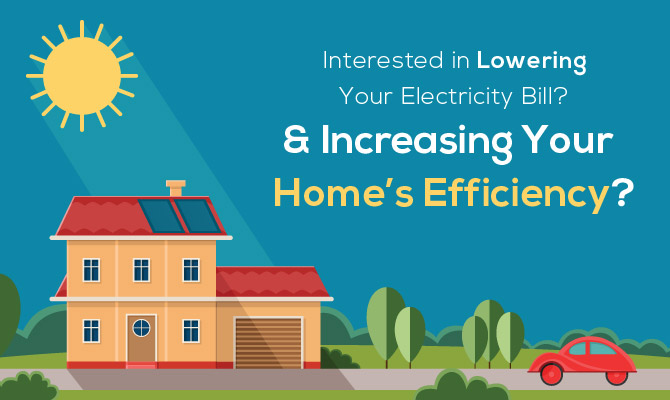
As technology progresses and solar power is becoming more affordable for the average American family, it’s no wonder so many people are deciding to go solar. Currently, there are over 700,000 homes in the United States that run on solar energy. Are you interested in lowering your electricity bill and increasing your home’s efficiency? Here are some things to consider before installing solar panels:
1. The condition of your roof.
If your roof doesn’t need to be replaced for 10 to 15 years, you should be all set to go solar. An aging roof can cause project costs to increase because there’s an increased chance of damage during installation and if you need a new roof, removing and reinstalling solar panels is costly. If you’re unsure of whether or not you need to replace your roof, call a professional for an inspection. A small cost upfront is better than facing an expensive nightmare down the road.
2. Type of your roof.
Asphalt shingles are the most common type of roofing and one of the easiest for solar installers to work with. Other roofing materials such as wood shingles or Spanish tiles are more delicate and some installers may tell you that solar wouldn’t work on your roof. However, this is not true. Solar panels can be installed on almost any roof, no matter the material or angle, but may require different mounting systems and an increased timeline. If your roof is not asphalt shingles, you should take the time to find an installer who has experience with your roof type.
3. Size of your roof
Even though solar panels can be installed on almost any type of roof, some will be more challenging than others. If your roof has a lot of skylights or roof vents, only a small number of panels can be installed and it might not produce enough energy to make a dent in your utility bill.
4. Location of your home.
Unfortunately, all solar powered homes were not created equally. For example, solar panels are more efficient in sunny Worcester, Massachusetts than in Seattle, Washington where it rains for the majority of the year. Solar panels are the most effective when they are exposed to full sun from 10 AM to 2 PM. Even if you live in a sunny area in the country, it doesn’t mean that your house is getting enough sunlight. Some problems can be easily fixed (although pricey) like cutting down some trees. Others are more permanent like your home being in the shadow of another building.
5. Amount of power you want to produce.
When selecting a solar system for your home, you shouldn’t be asking about how many panels you need, but how much power you want to produce. You can easily see how much electricity you need to generate to run your home by looking at previous electric bills. Don’t take a peek at the latest couple, take the entire year into account because energy use fluctuates seasonally. Also, consider whether you want to make a dent in your electricity bill, or eliminate it completely. The larger your system, the more power you’ll be able to produce.
6. Homeownership
Do you own your home or are renting? Unfortunately at this time, people who rent apartments are unable to go solar. Even if you do own your home or condo, you may need written permission from the home owner’s association or local government to begin a solar project. Be sure to get all this information first before you proceed with the install because you may be asked to remove the panels and reinstall them based on that agency’s preferences.
7. Life of solar panels
The average lifespan of solar panels are 20 to 30 years and often lose 0.05% efficiency annually. Because solar panels don’t have any moving parts, there is hardly any maintenance to perform on them. It is important to hose them off in the summer and keep the leaves off of them in the fall so they continue to get maximum sun exposure.
8. Government incentives
Many states are pushing residents to increase their energy efficiency so they offer tax benefits and financial aid to people interested in having solar panels. It’s important to note that only people purchasing solar panels, not leasing, are eligible for these programs.
9. Whether to buy or lease
This is probably the biggest question for people interested in going solar. Buying is more expensive up front but your investment will pay off in the first several years and it’s easier to get your utility bill down to zero. If you decide to lease, you’ll be locked into a 20-year contract that is difficult to transfer if you plan on selling your home.
10. Solar panels are an investment
Despite the government incentives that are offered, solar panels are still an investment of time and money. You may have to do some initial preparation such as redoing your roof, calling in expert inspectors, or upgrading appliances to be more energy efficient.







